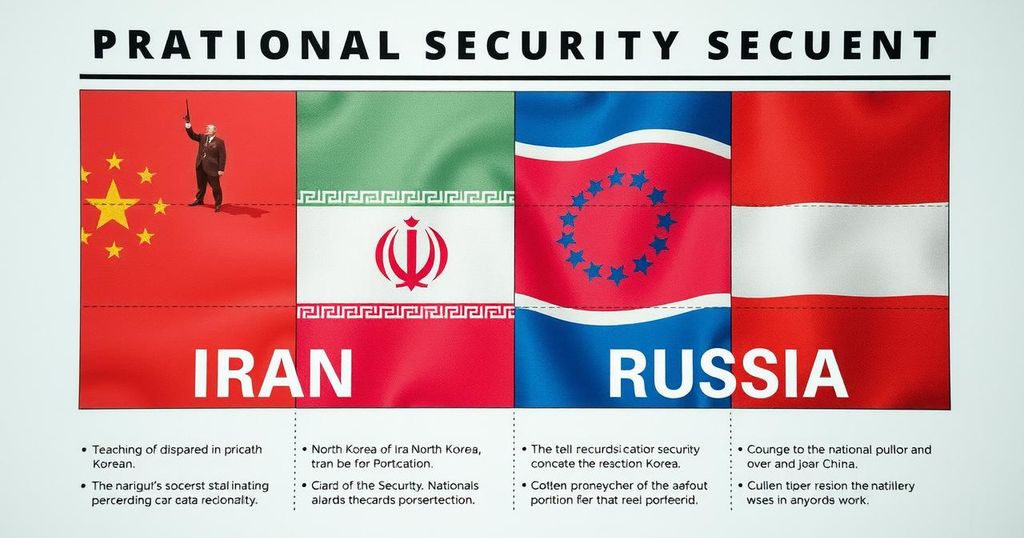Biden Approves National Security Memorandum Addressing Rising Global Threats

President Biden has approved a national security memorandum to guide the incoming administration in responding to the growing cooperation among China, Iran, North Korea, and Russia. The classified document outlines key strategies for enhancing interagency cooperation, sharing intelligence with allies, calibrating sanctions, and preparing for multiple crises. This initiative underscores the urgent need for a cohesive response to the geopolitical challenges posed by these countries.
In anticipation of Donald Trump’s potential return to the White House, President Joe Biden has authorized a national security memorandum aimed at addressing the evolving relationships among China, Iran, North Korea, and Russia. This memorandum, developed over the summer by Biden administration officials, is designed to assist the succeeding administration in implementing strategies from the outset to counteract the increasing collaboration among these significant global adversaries. The White House has chosen not to make the classified document public, citing the sensitive nature of some of its contents.
The memorandum outlines four key recommendations for enhancing U.S. national security. These recommendations focus on improving interagency cooperation within the government, expediting information sharing with allied nations regarding these adversaries, effectively calibrating sanctions and economic measures, and preparing for simultaneous crises involving these countries. This is particularly pertinent given heightened concerns over their coordination, which has been exacerbated by Russia’s isolation following its invasion of Ukraine in 2022.
A senior administration official noted that as Russia faces increasing global isolation, it has strengthened ties with Iran for military equipment and has relied on North Korea for artillery and troops. Such relationships include Russia providing military technology to Iran while North Korea benefits from fuel and financial support to enhance its military capabilities. Notably, China is also deepening its military collaboration with Russia, conducting joint operations in the Arctic and sharing technological resources, leading to heightened geopolitical tensions.
The approval of this national security memorandum by President Joe Biden occurs against a backdrop of intensified global rivalry, particularly involving China, Iran, North Korea, and Russia. Each of these countries has shown a tendency to cooperate more closely, especially following recent geopolitical events such as Russia’s invasion of Ukraine, which has driven them to seek mutual support amidst increasing isolation from the West. Such dynamics underline the urgent need for a cohesive U.S. strategy to address these shifting alliances and their implications for global security.
In summary, President Biden’s recent national security memorandum reflects a proactive approach to the increasing cooperation among some of the most significant U.S. adversaries. By establishing guidelines aimed at fostering interagency cooperation, enhancing allied information sharing, effectively utilizing sanctions, and preparing for simultaneous crises, the memorandum seeks to provide a foundational strategy for the incoming administration. This approach aims to address the complexities of contemporary international relations and the urgent challenges posed by these adversaries.
Original Source: www.pbs.org








